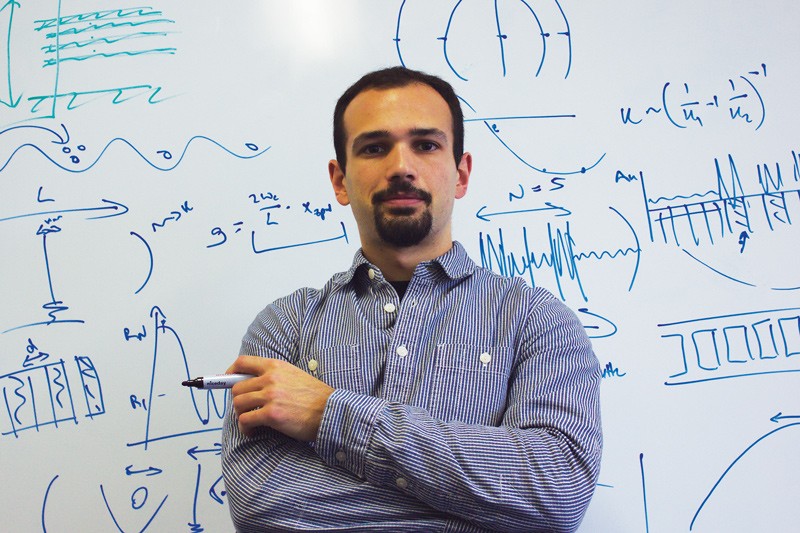Dr André Xuereb shines a light on some of the coldest atoms in the Universe.
I have always known myself to be infinitely curious, forever asking questions to my poor parents and siblings. Being mathematically inclined, reading for a B.Sc. (Hons) degree at the University of Malta was a natural next step after completing my ‘A’ level studies. Subsequently in 2007, I flew to Geneva and spent the summer working at CERN as part of the first group of Maltese summer students. Acting on a whim, I went to Southampton to read for a Ph.D. in new methods for cooling atomic gases.
Why did I find this interesting? Cold atoms are essentially a “blank canvas” whose properties we can tailor at will. An incredible variety of different experiments are possible, all to explore an astonishingly wide swathe of modern physics. My research is theoretical, and during my PhD I focused on devising ways of cooling almost any atom or molecule to temperatures very close to absolute zero (which is -273.15oC, a lot colder than anywhere on Earth). This work gave rise to several scientific articles, and a rather long thesis, which has just been published as a book.
After graduating from the University of Southampton, in early 2011, I moved to the Leibniz University in Hanover, Germany, for several months, and then back to the United Kingdom to work at the Queen’s University in Belfast. I am now a Research Fellow of the Royal Commission for the Exhibition of 1851, which allows me to work on problems of my choice and devise my own research programme.
I split my time between Belfast and the University of Malta. Recently I had the honour to be the first Maltese representative at the Meetings of Nobel Laureates at Lindau. This year’s meeting was dedicated to physics. It brought several hundred young scientists together with twenty-six Nobel Laureates to discuss physics and foster collaborations, a once in a lifetime opportunity.
Much of my current research is in the field of optomechanics, where we study the behaviour of (relatively) large objects at temperatures a small fraction of a degree above absolute zero. I entered the field when it was small but growing rapidly, and had the opportunity to collaborate closely with some great pioneers. A central point of my research is to figure out why we don’t see quantum mechanical behaviour in our everyday lives: in quantum mechanics, an atom quite happily passes through two slits simultaneously, while a human would have quite some trouble passing through two side-by-side doors at the same time.
A surprising number of questions are still open in physics, and there are few things more fascinating than being at the forefront of science, pushing the boundary of human knowledge. I have never stopped asking questions — Nobel laureate Roy J Glauber called me “my favourite bully” at the Lindau meeting — and I do not plan on stopping any time soon. •





Comments are closed for this article!